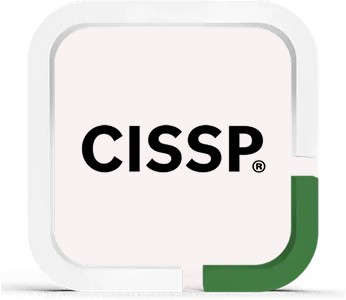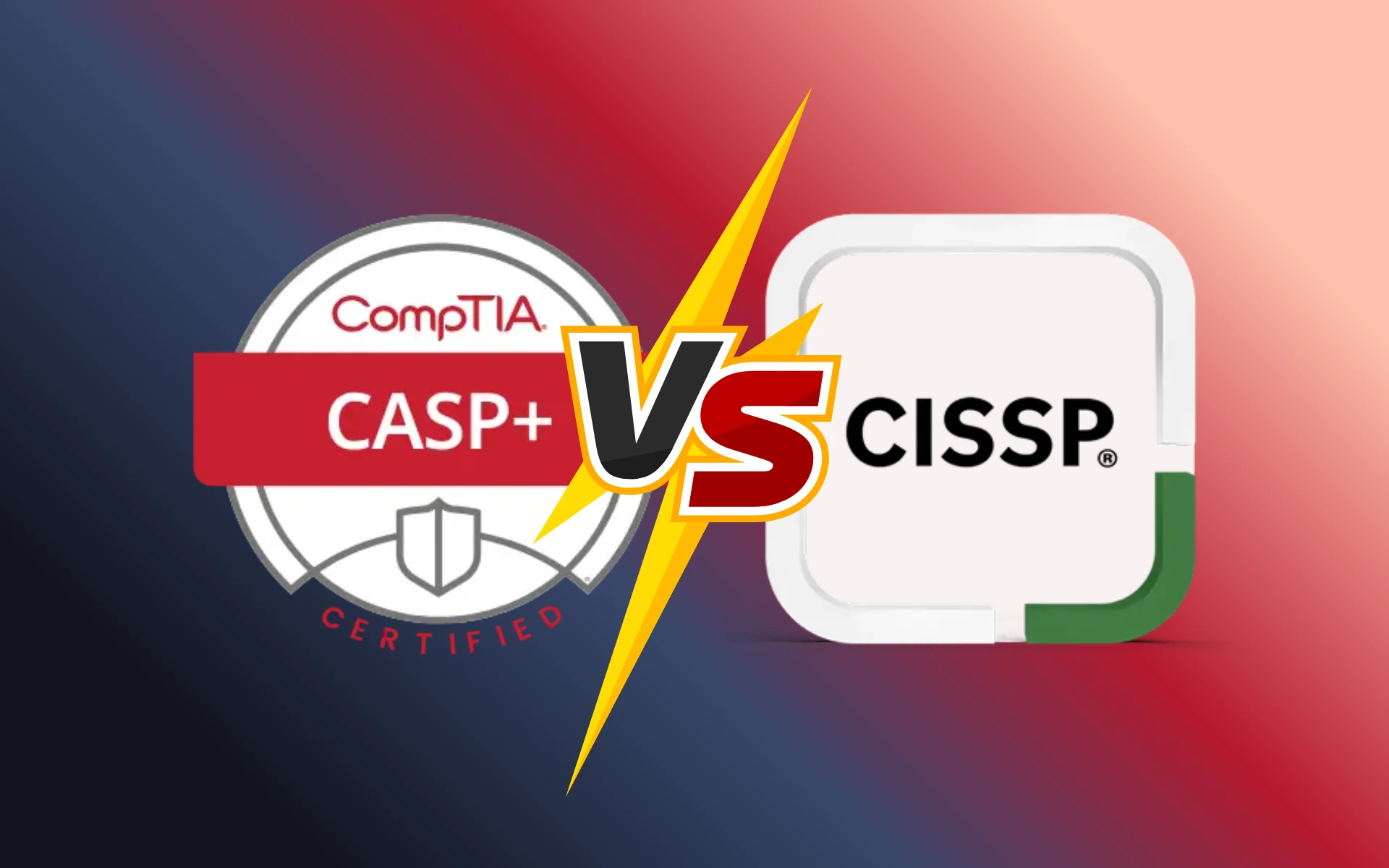The need for upskilling and acquiring top cybersecurity certifications is no longer invisible.
Every second, a digital battle rages where hackers lurk in shadows. Banks, hospitals, governments, even your smart fridge, all rely on layers of security to keep threats at bay.
But as cyberattacks grow smarter, the demand for skilled defenders skyrockets. Companies are scrambling to find certified professionals to lock the gates before the wolves get in.
That’s where the best cybersecurity certifications come in. They are not some fancy entries on a resume. They’re proof that you stand on the front lines.
Whether you’re just stepping into this battlefield or looking to sharpen your skills, the right certification is the key to a thriving cybersecurity career.
Ready to explore the most popular cybersecurity certifications? Let’s jump right in.
1. CompTIA Security+
Are you standing at the gates of the cybersecurity field? CompTIA Security+ is one of your first trusted, no-nonsense, and best cybersecurity certifications for beginners.
It comes with no strict prerequisites, but CompTIA recommends two years in IT security to sharpen your skills.
With Security+ in hand, you can step into roles like:
- Security Specialist
- Systems Administrator
- Junior Penetration Tester
And the bonus? An average salary of $82,439 per year with room to grow as you climb the ranks.
It’s the beginning. From here, you can choose CySA+, Pentest+, or CISSP, defining a job-secure career path.
Heading Of The CTA

Security+ Deep Dive: Labs, Forensics & Compliance
Cybersecurity threats are real. Get prepared with our CompTIA Security+ (SY0-701) training course.
Learn More2. Certified Information Systems Security Professional (CISSP)
If cybersecurity had a VIP club, CISSP would be the membership everyone wants. It’s a career-defining badge of expertise, trusted by organizations worldwide.
With an exam cost of $749, it’s a promising investment in the “Best Cybersecurity Certifications” list. But before hitting the “Pay Now” button, make sure you have five years of hands-on cybersecurity experience in at least two security domains. If you have a degree or another approved certification, you can shave off one year.
CISSP certification opens doors to high-stakes, high-reward roles like:
- Chief Information Security Officer (CISO)
- Security Architect
- Security Consultant
- IT Director/Manager
And command a premium average salary of $147,757 per year. Mind you, it is not the end. You can specialize further in CCSP (cloud security), CISSP-ISSAP (architecture), or even move into executive leadership.
Heading Of The CTA

Certified Information Systems Security Professional (CISSP)
Learn to design and implement the best cybersecurity systems and increase your chances of securing the CISSP certification.
Learn More3. Certified Information Security Manager (CISM)
Technical skills get you in the door, but CISM (Certified Information Security Manager) is what puts you at the decision-making table. This certification is all about leading it, governing it, and making it work for business.
Coming with an exam cost of $575 for ISACA members and $760 for non-members, it requires you to have five years of information security management experience.
With CISM, your job titles might include:
- Information Security Manager
- IT Risk Manager
- CISO
- GRC Consultant
Most importantly, you can make an average salary of $160,000 per year. From here, you can climb the ladder with CISSP for broader expertise or CRISC for deeper risk management skills.
Heading Of The CTA
CISM Certified Information Security Manager
Gain the advanced cybersecurity skills to defend your digital assets with a CISM training to back it up!
Learn More4. Certified Information Systems Auditor (CISA)
Where threats lurk in every corner, someone has to play detective. That’s where CISA (Certified Information Systems Auditor) comes in. It’s about scrutinizing systems, ensuring compliance, and making sure security isn’t just a promise but a reality.
The CISA exam costs $575 for ISACA members and $760 for non-members, a small price for a credential that opens big doors.
Here’s the catch. This isn’t for newcomers. You’ll need five years of experience in IT audit, control, or security before you can even sit for it.
What doors does CISA open? You can secure one of the following, or related job roles:
- Information Systems Auditor
- Compliance Analyst
- CISO
- Risk Analyst
- Security Consultant
And the payoff? You will earn between $75,000 and $150,000 a year, with salaries climbing as you gain experience. You can also pivot to CISM for management or CRISC for risk expertise. Or stay in audit and rise to lead internal security teams.
Heading Of The CTA
Certified Information Systems Auditor (CISA)
Learn how to audit, control, monitor, and secure information systems to meet the CISA’s exam objectives.
Learn More5. Certified Ethical Hacker (CEH)
Think like a hacker, act like a defender. Offered by the EC-Council, the CEH certification turns security professionals into digital detectives.
Being one of the best cyber security certifications, it teaches you to think like the bad guys, spotting weaknesses before they’re exploited. It’s hands-on training in real-world hacking techniques, used for good.
Breaking into CEH requires either two years of security experience or official EC-Council training. The exam costs between $950 and $1199, depending on the test location.
Passing it proves you can walk the tightrope between attacker and defender. It opens doors to job roles like:
- Penetration Tester
- Security Analyst
- Ethical Hacker
These roles typically pay $80,000 to $150,000 annually; proof that fighting fire with fire pays well.
Above all, it’s the perfect launchpad for advanced red team roles or specialized certifications like OSCP.
6. GIAC Security Essentials (GSEC)
Created by the SANS Institute, the GSEC certification tests your ability to detect, defend, and respond to real cyber threats. It’s for professionals who want to move beyond theory and into action.
With no strict prerequisites, GSEC welcomes both newcomers and experienced practitioners. The exam costs between $999 and $1299, covering everything from network security to incident response.
GSEC holders often land roles such as:
- Security Analysts
- Incident Responders
- System Administrators
- Computer Forensic Analyst
- IT Auditor
Passing the GIAC Security Essentials exam means you can make between $70,000 and $135,000 a year. It’s a springboard to advanced GIAC certifications like GCIH or GCFA.
Grow Your Cybersecurity Career
Discover top cybersecurity courses and hands-on training to boost your salary & career.
Browse Catalog7. Certified in Risk and Information Systems Control (CRISC)
Cyberthreat is the name of the game, and CRISC (Certified in Risk and Information Systems Control) is your playbook. This certification showcases you as a strategist who spots digital dangers before they strike, balancing security with business needs.
To earn CRISC, you’ll need three years of risk management experience across at least two domains. The exam will set you back $575 (for ISACA members) or $760 (for non-ISACA members).
CRISC-certified professionals land roles like:
- Risk Manager
- Compliance Officer
- Security Consultant
- IT System Administrators
It’s the perfect trampoline to boost your annual salary between $120,000 to $160,000 in the US. For those who want to be calm during a cybersecurity storm, CRISC is the one for you.
8. Computer Hacking Forensic Investigator (CHFI)
The rise of cybercrime has turned digital forensics into the “silent guardian” of the business world. That too, single-handedly. Think about it:
Collecting evidence,
Analyzing data,
Tracking hackers,
Building cases
Together they form the core of forensic investigation. Their mission? To uncover the truth hidden in ones and zeros, ensuring justice in the digital wild west.
It’s no surprise that organizations worldwide are scrambling for CHFI-certified professionals. The certification exam voucher costs $650. It requires either two years of security experience or EC-Council training.
CHFI holders work as:
- Forensic Analysts
- Incident Responders
- Cybercrime Investigators
- Disaster Recovery Expert
- Cryptographer
…and more. It’s a launchpad into law enforcement cybersecurity roles with a salary range of $60,000 to $130,000. For those who love playing Sherlock Holmes, CHFI turns your curiosity into a career.
9. Systems Security Certified Practitioner (SSCP)
Granted, the safest approach to entering the cybersecurity industry is through entry-level certs. But they don’t always carry the weight of real-world skills.
They’re generic.
They’re theoretical.
I mean, how many times have you stared at a security dashboard, wishing you had more practical knowledge?
The ISC2 SSCP certification is a sweet spot between fundamentals and hands-on expertise. For just $249 and with one year of experience, it validates your ability to actually implement controls.
SSCP-certified professionals earn $95,000 to $120,000 and land roles like:
- Security Analyst
- Network Engineer
- Database Administrator
- Systems Engineer
Heading Of The CTA

The Ultimate SSCP Exam Preparation
Start our SSCP course to develop in-demand security skills, advance your career, and enjoy an easy, interactive learning experience.
Learn More10. CompTIA Advanced Security Practitioner (CASP+)
Poor cybersecurity planning is a hurricane! One overlooked vulnerability, one delayed patch, and the entire network can collapse. Businesses feel the pain, and with every breach, their reputation starts to crumble.
But CASP+ professionals, acting as the anchors in this storm, keep defenses strong. This CompTIA IT certification is rebranded as SecurityX, effective with the release of the exam version, CAS-005, on December 17, 2024.
You can increase your earnings to $90,000-150,000+ by taking roles like:
- Security Architects
- SOC Managers
- Incident Responder
- Cyber Risk Analyst
- CISO
CASP+ certification opens doors to roles that demand depth. And with SecurityX on the horizon, now’s the time to stake your claim as a true security strategist.
Heading Of The CTA

CASP+ CompTIA Advanced Security Practitioner (CAS-004)
Take our hands-on exam prep course for CASP+ CompTIA Advanced Security Practitioner (CAS-004) certification to improve your cyber readiness within the organization.
Learn MoreAnd That’s A Wrap!
Voilà! The world of the most popular cybersecurity certifications is your gateway to an exciting, ever-evolving career. With high demand, impressive salaries, and roles that range from digital detective to security mastermind, there’s never been a better time to dive in.
So, here’s the deal: Whether you’re just starting with Security+ or aiming for the elite CISSP, uCertify has your back. Our cybersecurity certification exam prep courses and hands-on training get you job-ready, and armed with real-world skills. So, grab your chance, pick your path, and let’s turn those career dreams into reality. The clock’s ticking.
FAQs
• Red Team (Offensive): CEH, PenTest+
• Blue Team (Defensive): CySA+, CISSP
• Governance/Risk: CRISC, CISA
• Google Cloud Cybersecurity Professional Certificate
• CompTIA Security+
• CISSP
• CISM
• CEH
• CISA
CISSP (70% pass rate):
• Why hard? Broad, managerial focus across 8 domains
• Challenge: Answering like a risk-aware executive, not a technician
OSCP (~50% first-time pass rate):
• Why hard? 24-hour hands-on pentest with real networks
• Challenge: No multiple-choice. Just exploitation, documentation, and sheer persistence
• Google Cybersecurity Certificate (Cheaper, no exam)
• ISC2 CC (Entry-level cert)
• Cyber security certifications: Security+, CEH, CySA+
• Hands-on experience: Hands-on virtual labs, internships, etc.
• Networking: LinkedIn
Tip: Start with IT roles (Help Desk → SOC Analyst).
• Defensive Path: CySA+ → CISSP
• Offensive Path: CEH → OSCP
• Cloud Path: CCSP → AWS/Azure certs
• Degree: Teaches theory (algorithms, programming)
• Certs: Validate job-ready skills (pen-testing, compliance)
Result: You’ll stand out in technical roles (e.g., Security Engineer) and leadership (CISO).




_0010vS.webp)
_000Zs5.webp)

No Comments Yet
Be the first to share your thoughts on this post!